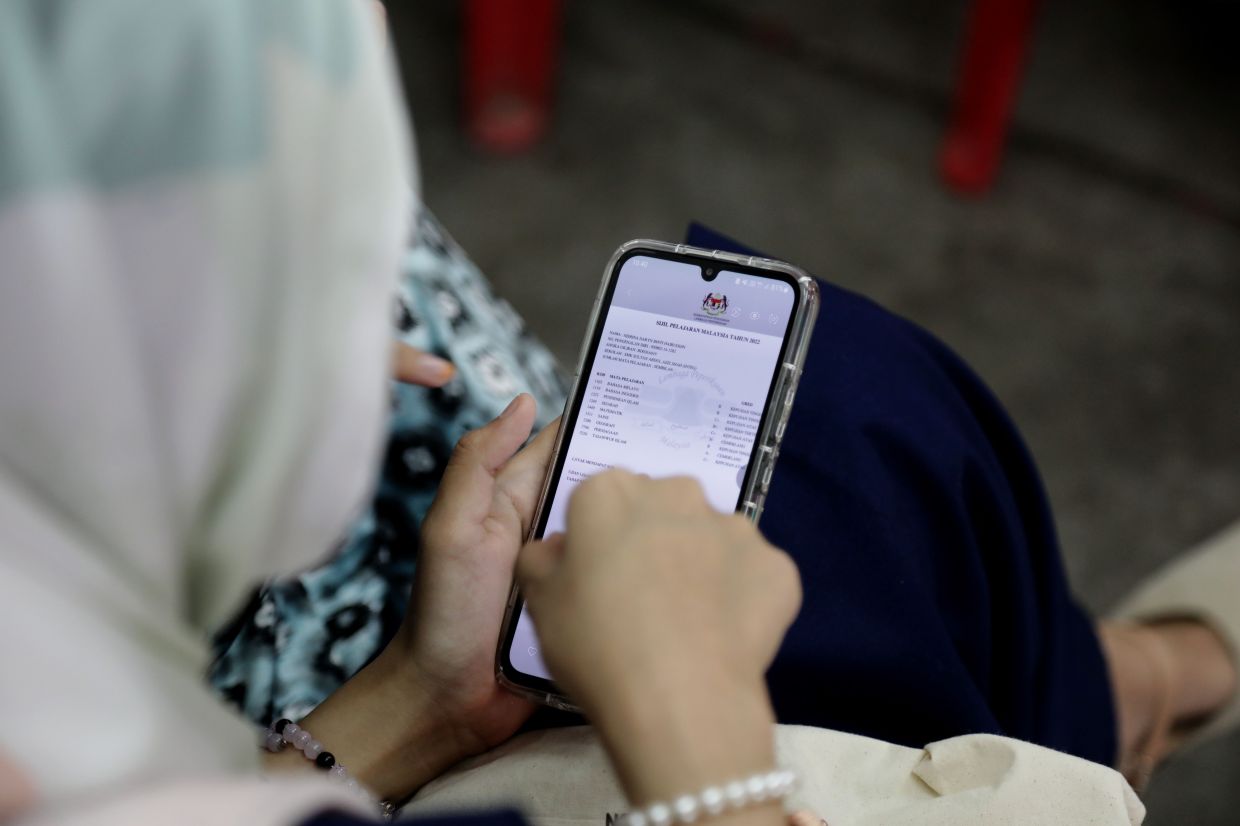ADVERTISE HERE
The new Digital Education Policy is a timely necessity but it can only achieve its aim with proper infrastructure in place.
The digitalisation of education is crucial but without the hardware and software, such a policy will not be effective, parents and educators say.
The policy, unveiled by Education Minister Fadhlina Sidek on Nov 28, will be in effect until 2030.
While the policy is good, educationist and former Universiti Malaya professor Tan Sri Dr T. Marimuthu raised concerns about its rollout.
“Are we able to implement it effectively? Digitalisation presents an opportunity for individuals to acquire knowledge but there are certain prerequisites we must fulfil before the digital education policy can be effectively carried out.
“The entire world is now immersed in a digital landscape but are we prepared with the infrastructure to ensure that the ideals of the policy come to fruition?
“Do schools in Sabah and Sarawak have the ecosystem to benefit from this effort?”
Marimuthu said if the ministry is to embark on the policy, it must first assess the readiness of students and schools to implement it.
There must also be safeguards in place to prevent students from being exposed to detrimental online influences that are unrelated to their educational pursuits, he added. Only if we are truly prepared can we welcome the policy, he said.
Agreeing, Universiti Utara Malaysia School of Education senior lecturer Dr Muhammad Noor Abdul Aziz said the need for proper infrastructure is paramount for the policy to succeed.
“Currently, some schools have integrated smart boards, but many others lack the necessary infrastructure.
“The inadequacy of facilities has been a notable hindrance and while the government’s plans to upgrade infrastructure under Budget 2024 are promising, success will hinge on a gradual, well-thought-out implementation,” he said.
The policy, he added, must include measures to effectively guide teachers and parents, and to provide them with the necessary resources to effectively impart and absorb tech-savvy knowledge.
“During the Covid-19 pandemic, remote learning highlighted the need to help parents utilise digital technology to support their children’s education.
“Therefore, the success of this endeavour requires a collaborative effort between the government, parents and schools.
“Parents must embrace and support this new policy for it to have an impact,” he added.
Describing the policy as an “advancement in the education system”, Melaka Action Group for Parents in Education (Magpie) chairman Mak Chee Kin said it is imperative to question whether the current Internet connectivity enables equitable access for all students nationwide.
“Addressing this fundamental issue should take precedence before we delve into initiatives aligned with educational progress,” he said.
Producing digitally-savvy students and teachers is important, said Fadhlina.
Speaking to reporters after launching the Digital Education Policy in Bangi last Tuesday, she said the initiative also places great emphasis on improving the infrastructure in schools.
“We acknowledge all the challenges, such as (the lack of) devices, Internet penetration and a digital divide between students in urban and rural areas,” she said.
To solve these issues, Fadhlina said the ministry has in place 367 Teacher Activity Centres (PKG) and 16 Educational Resource and Technology Sectors (SSTP) nationwide.
She also said that all schools under the ministry have been equipped with Internet connections ranging from speeds of 30 to 300mbps. Among these, 5,220 schools are provided with fibre optic lines; 4,901 locations have 4G wireless broadband lines; and 505 locations are equipped with satellite lines.
Fadhlina said there are six core thrusts in the policy – producing digitally-savvy students, having digitally-competent educators, a visionary digital leadership culture, digital education content and committed strategic partners, and improving infrastructure and infostructure.
She said these must be implemented simutaneously while ensuring the digital well-being of students. The (education) ecosystem, she added, would be stronger with a policy in place.
The policy was approved by the Cabinet on May 26. It was previously reported that the policy would encompass the entire learning ecosystem, going beyond schools and higher education institutions; involving parents, teachers and the community; and encompassing both infrastructure and infostructure; to provide interesting learning resources which can have a big impact on a child’s understanding.









 English (US) ·
English (US) ·